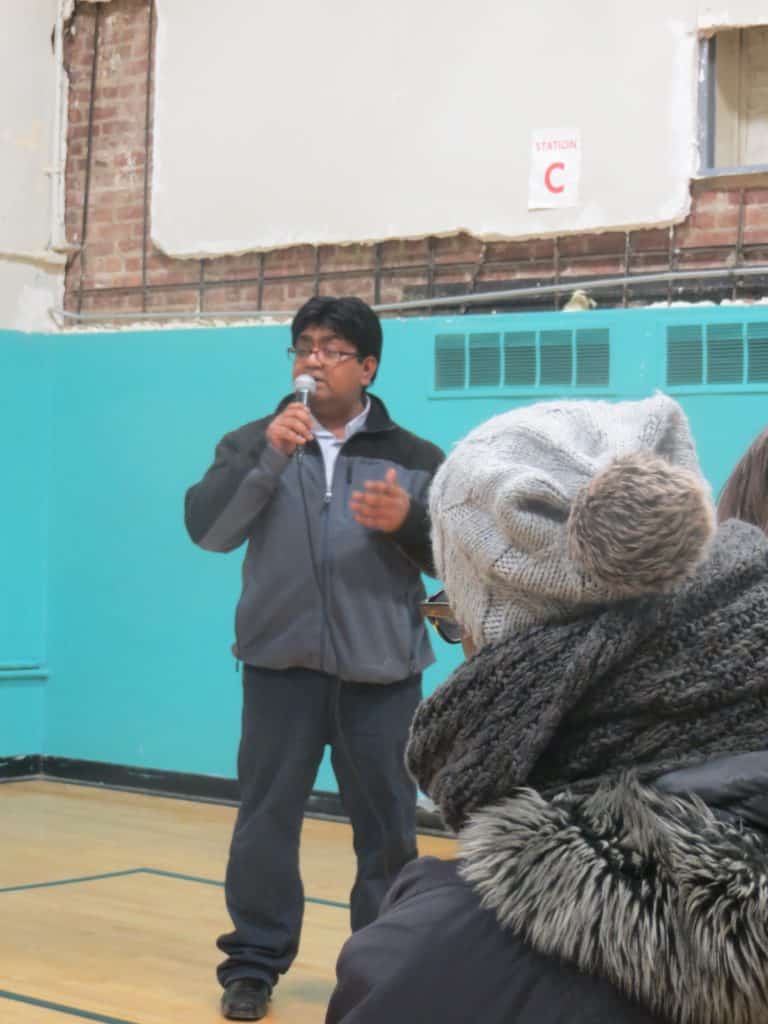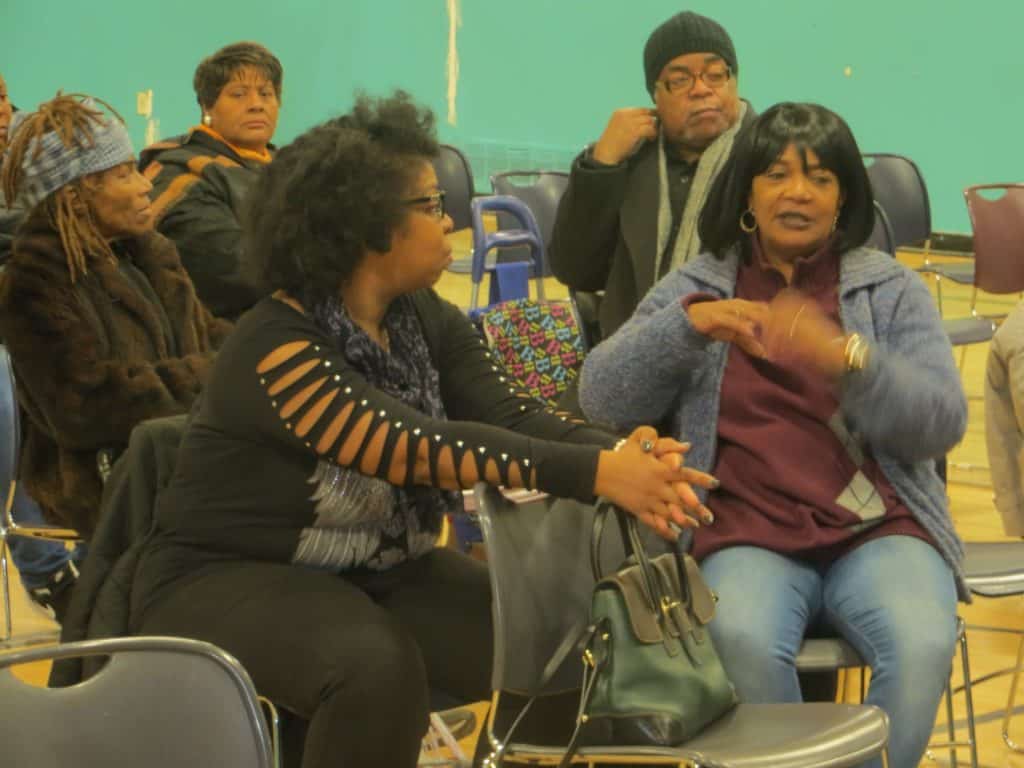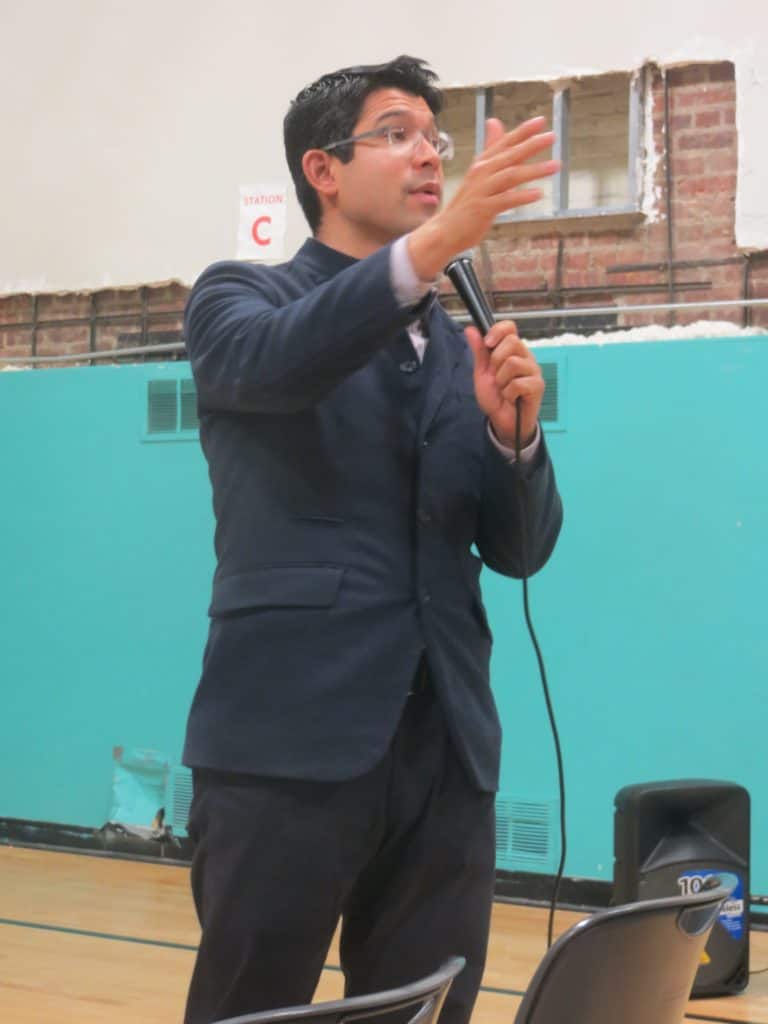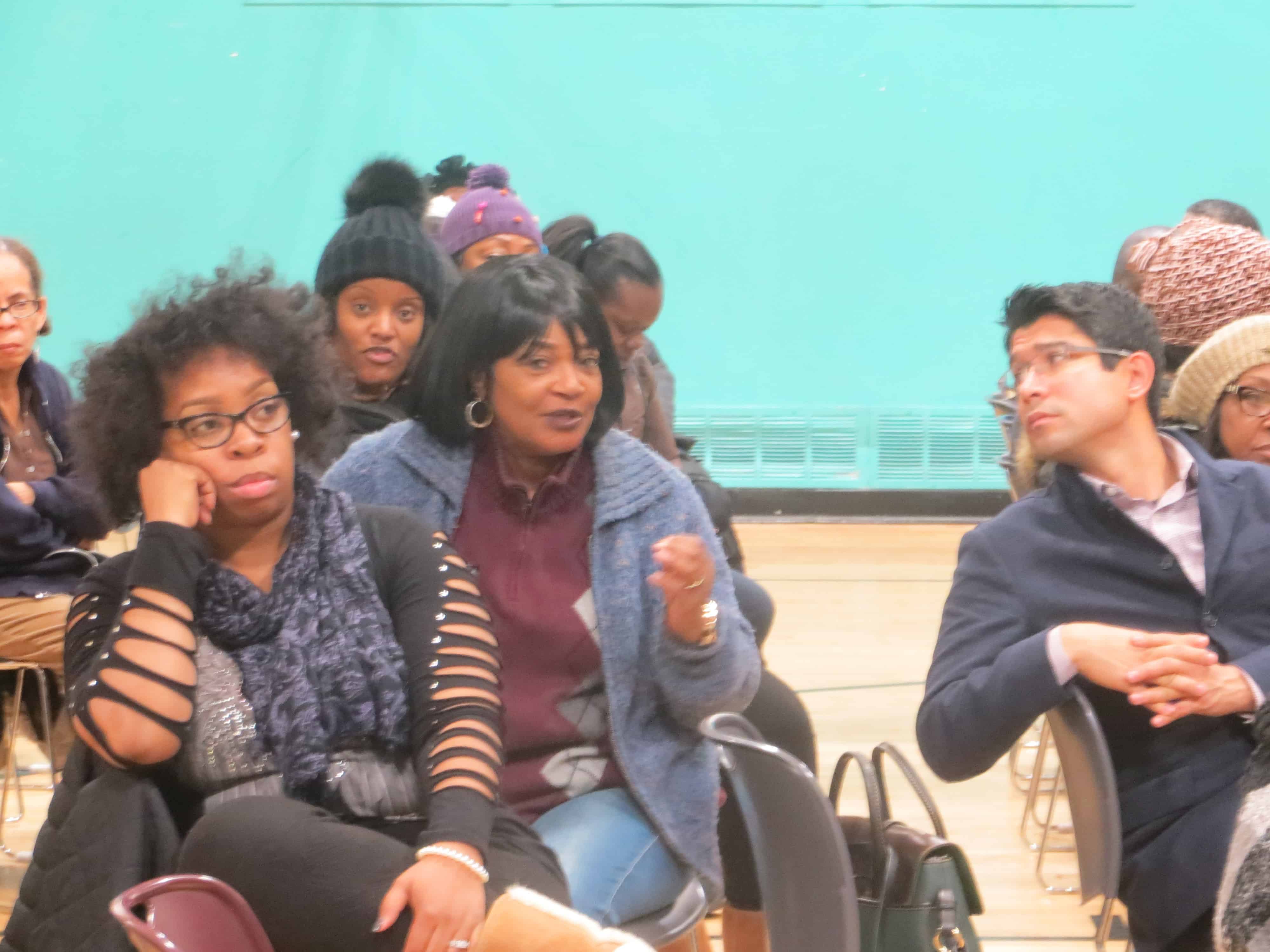UPDATE: In a second meeting this week, Brian Honan, NYCHA’s Director of Government Relations, addressed a crowd of angry residents with less babble and more hard facts. The meeting took place in the crowded lobby of 831 Hicks Street, one of the buildings involved in the gas outage. He clarified the situation, explaining that the gas is off until new pipes are installed. And new pipes cannot be installed until asbestos abatement is done. Which means that there will be no cooking gas in the four buildings until at least February.

Sometime around December 1, National Grid made an inspection of the basement of a building in the Red Hook Houses. In the course of that inspection, they found that the gas pipelines in the basement crawlspace was badly corroded.
Due to what they considered a dangerous situation, they ordered gas service shut at 116 Bush, 124 Bush, 829 Hicks and 831 Hicks, and ordered NYCHA to replace the piping. These four buildings include around 130 apartments.
Three weeks later, on Monday, December 19, NYCHA Capital Projects and Management called a community meeting at the Miccio Center. Interested and outraged residents, forced to cook on electric hotplates for three weeks showed up to find out from NYCHA exactly what was going on.
The meeting got going around 6:30 when a stocky man took the microphone. Among the fifty or so people who showed up for the meeting was Karen Broughton, representing Felix Ortiz, as well as councilmember Carlos Menchaca – both of whom were invited by email. Also invited was Viviana Gordon from the Justice Center, and Trequan Bekka, of Good Shepherd Services, both of whom were in attendance. Both TA Presidents, Lillie Marshall and Frances Brown took their seats, as well as a reporter from the local newspaper, the Red Hook Star-Revue, who was informed of the meeting at the last minute by a concerned resident.
NYCHA’s speaker was a gentleman named Naqi Ullah. Mr. Ullah is a NYCHA Construction Project Manager for NYCGHA Capital. He has been with NYCHA for two years. He had previously worked in construction for two private companies.
What most everyone in the audience came to find out was why their gas service was shut off, and when it would be restored. They also wanted to know whether they would be required to pay their full rent, while not having a basic service that every apartment renter expects – namely, the ability to use a stove.
Instead, the audience was treated to a mind numbing, technical explanation of building codes, construction procedures, labor procedures and NYCHA rules and regulations.
The audience, obviously disrespected by both the presentation and the length of the gas outage, without any noticeable work being done, listened very respectfully to Mr. Naqi as he somewhat incoherently and very repetitively attempted to address the incredible agenda that he was given. Excerpts from the agenda included:
Current gas outage work status.
Procedures and protocol that are involved.
Contractors and NYC Agencies involved with this work.
Asbestos abatement removal process and protocols.
Building Department’s involvement and process.
There were at least ten additional agenda items, of interest only to students of Public Housing procedures. Mr. Naqi must have explained five separate times how stoves that have exposed pipes will be more easily replaced than stoves that have pipes in the wall.
Mr. Naqi did seem to have one point of interest to those attending, which was that he would do whatever he could to get the gas turned back on for the upcoming holiday week. He couldn’t make any promises though, since it seemed he hadn’t yet asked National Grid, who shut the gas in the first place, due to the dangerous condition of the pipes.

“If you could turn it back on, then why was it shut in the first place,” someone asked.
Naqi did not have a reasonable answer for this, and said it was the purview of National Grid.
“Why isn’t anyone from National Grid here who might have some answers for us.”
Naqi couldn’t answer that. Of course, that wasn’t part of his job. His job was to explain policies and procedures to tenants denied the ability to use their stove, through no fault of theirs.
The following is a short excerpt of the 35 minute presentation given by Naqi.
“Six different agencies are involved when there is a gas outage. When I say a gas outage, meaning, that, physically, National Grid puts the job site, what their technicians, they go ahead and remove the meters. So when the meters is removed, when the meters are removed, that’s when these six different agencies are involved. Now the first step in order to get the gas back on is to communicate with National Grid, which I have done so far. I have looked at the situation, National Grid is aware of it, the Mayor’s office is aware of it, we are constantly, 24 hours, in contact – we know what is going on. So, second step is, there’s a few processes which are involved, such as asbestos removal, and then after asbestos abatement, you have installation of gas pipes, such as involvement of the Department of Buildings.”
After about fifteen minutes of this, the audience finally became restless, but no answers were forthcoming. Someone called Brian Honan, who has been a familiar NYCHA face around here, especially during the Sandy troubles, who, apprised of the situation, ordered Mr. Naqib to sit down.
At this point, Councilman Menchaca took the microphone and told the audience that the unified demand of all the people present would help get a more speedy solution to the crisis. This was the first that anyone referred to the lack of a basic necessity as a crisis.

Evidently, pressure from both Ortiz and Menchaca has produced another emergency meeting – tonight at 6 pm in the lobby of 831 Hicks Street, one of the affected buildings. It is said that Mr. Honan himself will be there to shed some clarity on the situation.









